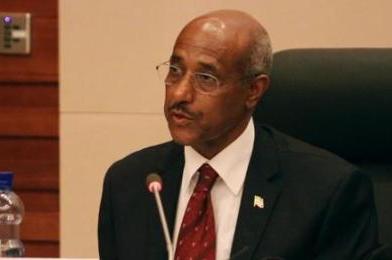IGAD ceasefire monitors commence operations in South Sudan
By Tesfa-Alem Tekle
April 12, 2014 (ADDIS ABABA) – A ceasefire monitoring team established by the Intergovernmental Authority on Development (IGAD) has officially begun monitoring a fragile truce signed by South Sudan’s warring parties.

.
The first monitoring team was deployed to Jonglei state capital Bor on 1 April, followed by a second team, which was deployed to Unity state’s Bentiu on 5 April.
IGAD said it is planning to deploy a separate team to Upper Nile state capital Malakal on 15 April.
More teams are also planned to be dispatched to Nassir, Akobo and other areas in the near future.
IGAD has also set up a Joint Technical Committee headquartered in the nation’s capital, Juba, to supervise the monitoring teams.
The joint committee comprises representatives of the two warring parties, IGAD member states, the African Union, UN and other nations backing the IGAD-sponsored peace process.
According to the regional bloc, the MVTs will be tasked with “assessing, monitoring, investigating, verifying and reporting allegations of violations against the cessation of hostilities” agreement.
“As an impartial and transparent mission, the MVT is focused on supporting the efforts of IGAD’s special envoys to find a peaceful and sustainable solution to the crisis in South Sudan,” IGAD said in a statement released on Friday.
South Sudan has been engulfed by fierce violence since mid-December last year when forces loyal to president Salva Kiir clashed with members of the presidential guard loyal to former vice-president Riek Machar, who now heads the rebel movement.
The conflict has claimed the lives of thousands of people and displaced over one million.
Continued fighting and food insecurity is also forcing tens of thousands to flee to neighbouring countries, including some 100,000 to Ethiopia.
The two conflicting SPLM parties signed a ceasefire agreement in 23 January following weeks of IGAD-led negotiations, however, the peace pact has failed to halt fighting on the ground, with both sides accusing each other of violating the terms of the deal.
The involvement of foreign troops, particularly Ugandan forces, which are fighting rebels alongside the government army, has also hindered the implementation of the ceasefire and efforts to a reach a speedy peace deal.
South Sudan’s warring parties are due to resume a new round of negotiations on 22 April in the Ethiopian capital, Addis Ababa, without the participation of the seven former political detainees.
IGAD recently announced the so-called SPLM-7, who were detained in connection to their alleged role in a plot to overthrow the government before being released, would be excluded from the talks.
The move followed threats by South Sudan to boycott talks if the group of seven were allowed to take part.
(ST)
